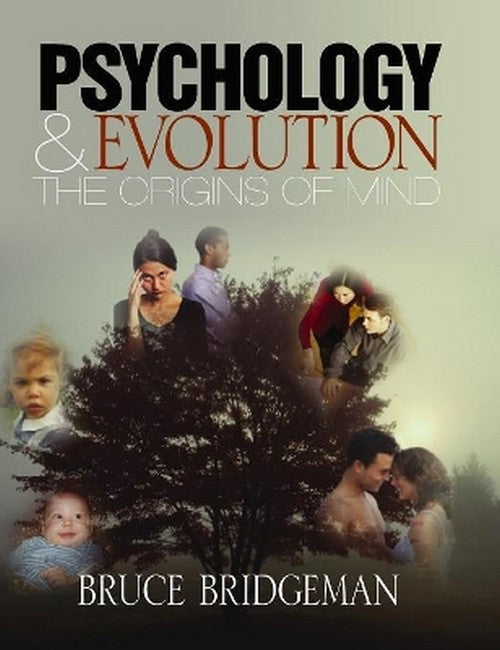Bruce Bridgeman is a professor of Psychology and Psychobiology at the University of California, Santa Cruz, a position he has held since 1973. He received a Ph.D. in physiological psychology from Stanford University in 1971, working in the laboratory of Karl Pribram, and then held post-doctoral fellowships in Berlin, Germany, at the physiological institute of the Free University of Berlin, and in Berkeley, California, at the UC Berkeley School of Optometry. He is author or coauthor of more than 100 published scientific papers and has authored or coedited five books along with 25 chapters in edited volumes. Aside from evolutionary psychology, which he has taught since the early 1980s, he has taught behavioral neuroscience, introductory psychology and psychobiology, and graduate seminars in perception. His research interests include visual perception, eye movements, computer simulation of cognitive processes, spatial orientation, and of course evolutionary psychology. A fellow of the American Psychological Society and the Psychonomic Society, he has received research grants and fellowships from the National Institutes of Health, the National Science Foundation, the Air Force Office of Scientific Research, The Max-Planck Society, and the National Aeronautics and Space Administration. As a lifelong choral singer, he has participated in international concert tours with the Cornell University Glee Club, the Berliner Konzert-chor, and the Santa Cruz Chorale.
Request Academic Copy
Please copy the ISBN for submitting review copy form
Description
Preface 1. THE EVOLUTION REVOLUTION Why Evolution? Social-Science Views of Humans. Nature versus Nurture? The Place of Evolutionary Psychology. History of Evolution in the Behavioral Sciences. Uses and Misuses of Evolution. How Evolution Works. Genetic Mechanisms of Evolution 2. THE PAST: 95% OF HUMAN HISTORY Phylogenetic Origins. Human Prehistory. 3. COURTSHIP AND REPRODUCTIVE ADAPTATIONS Sexual Reproduction. Reproductive Adaptations. Mate Selection. 4. CHILDREN AND CHILD-REARING Pregnancy and Childbirth. Infancy and Early Childhood. Education. Relations with Caretakers. 5. FAMILY AND SOCIETY Family Structure. Cooperation. Social Organization. 6. ECONOMIC AND PUBLIC LIFE Large-scale Cooperation. Status and Social Dominance. Persistent Irrationalities of Human Action. 7. LANGUAGE AND COMMUNICATION The Evolution of Language. The Structure of Language. Language Development in Children. The Anatomy Of Language. Functions of Language 8. PERCEPTION, MEMORY, AND CONSCIOUSNESS Visual Perception. Memory. Consciousness and Planning. 9. EVOLUTIONARY PSYCHIATRY Four Classes of Mental Illness. Exaggerations of Normal Behaviors. Balances of Costs and Benefits. Illnesses That Confer Only Costs. Drug Addictions. Drugs and Mental Illness. Conclusion - The Diverse Origins of Mental Illnesses Glossary References Author Index Subject Index
"Bridgeman's Psychology and Evolution is a superb textbook in evolutionary psychology...I see it as a landmark in the emergence of evolutionary psychology as no longer a controversial minority current but as a central aspect of the mainstream. The book reflects the state of the art in current work in evolutionary psychology...the reader is brought up-to-date about evolutionary theory, modern genetics, human prehistory, and relevant issues in modern linguistics." -- M. Brewster Smith "This is an important book. Readers partial to evolutionary psychology, as well as those who remain skeptical, will benefit from a careful reading of this reader-friendly book...The author endorses the core assumptions of evolutionary psychology...but, refreshingly, he includes, often with a new slant, relevant material usually overlooked by both believers and skeptics." -- Andrew Neher

